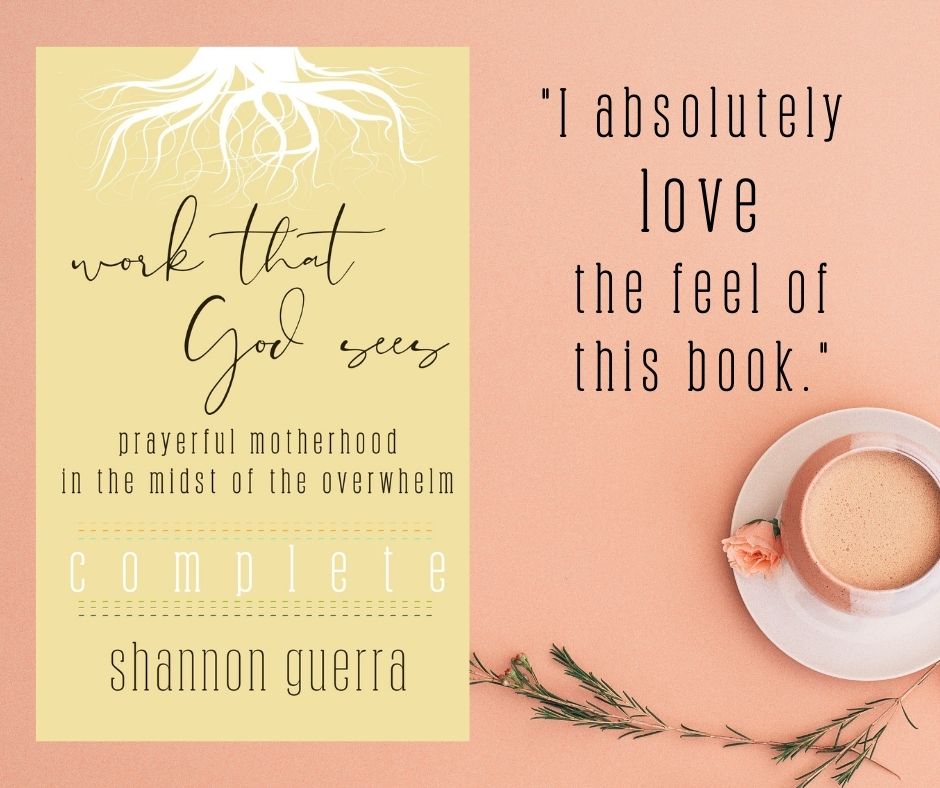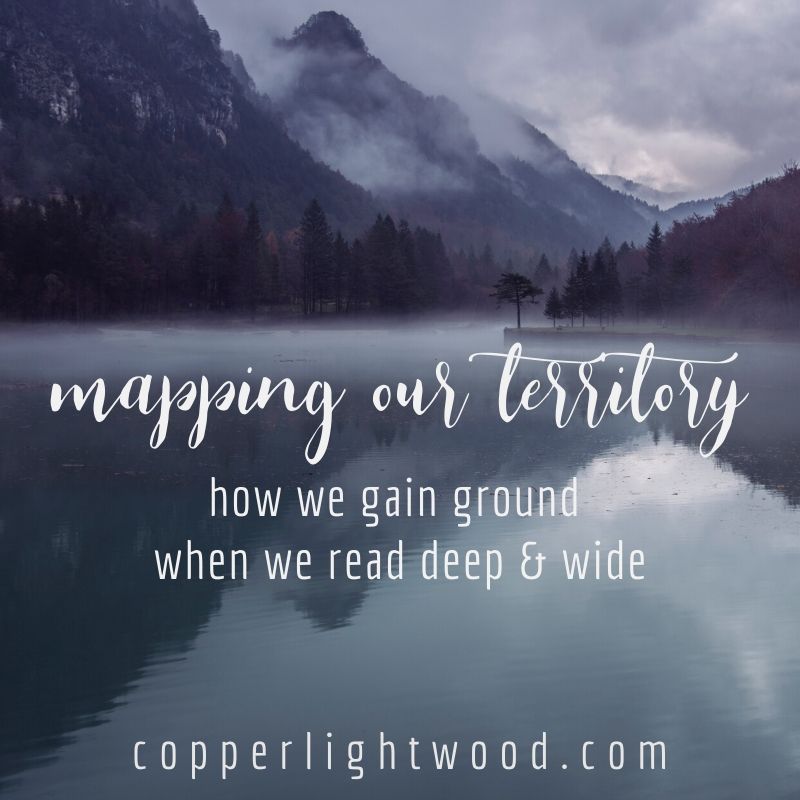“I want to make that. And I want to make that.”
Finn is flipping pages in one of the Irish cookbooks Grandma gave me years ago, pointing to the pictures like it’s his favorite story: barm brack, shortbread, scones, seafood pie, game pie. He’s next to me on the crowded couch while I eat a late breakfast, sharing my fried banana cookie with Kav.
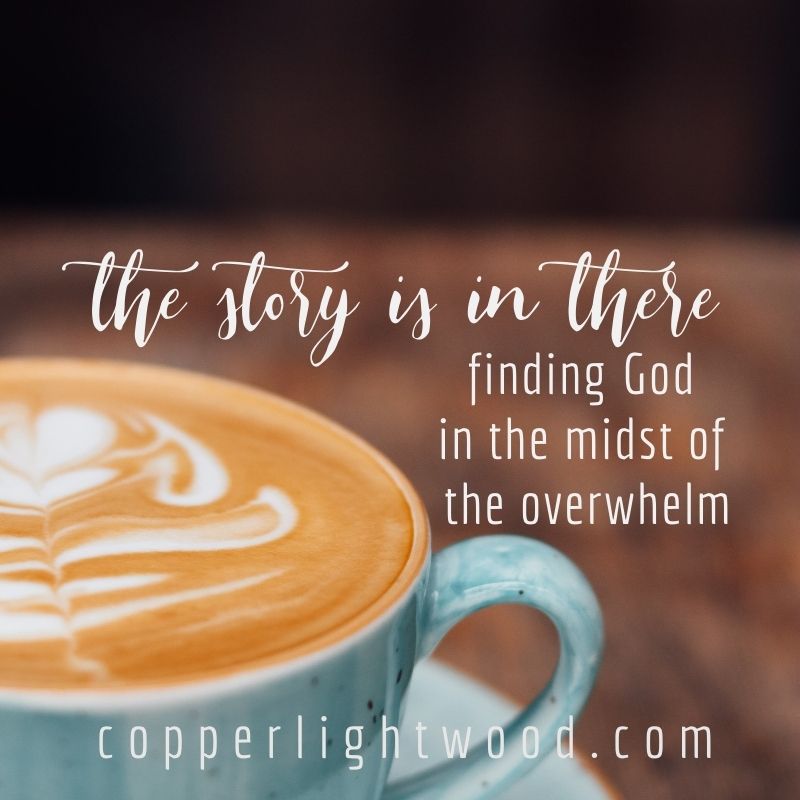
He flips to the desserts and I’m glad I’m already having a sweet breakfast (sugar-free, thankyouverymuch) because now Finn’s saying I want to make that, and that, and that about blackberry crumble, autumn pudding, barley flummery, burnt cream, and carrageen pudding. I don’t know what some of those are but the language speaks to something deep within me, and the pictures are drool-worthy.
“I want to make that,” he says again, and whoops, he’s already made it to the drinks section and is pointing at a layered cocktail. The pictures look festive and innocent – sloe gin, blas meala, Gaelic coffee. But mulled cider and driver’s special notwithstanding, the main ingredient in several of them is whiskey. Slainté.
I’ve never made most of the recipes in this book – though I do love a wee splash of whiskey in a mug of decaf late at night on occasion – but maybe someday I will, if I have the right ingredients.
And also, maybe someday I will when there’s more time.
Or, when there’s different time. In a different season. Because this season is so full, I don’t have the time (or at least, the inclination) to scour the Matanuska Valley for a source of Irish moss – and while I’ve accidentally substituted daisy leaves for dill before (more about that in a sec), I don’t trust any Alaskan moss as a substitute for it in pudding.
Because this is often a season of overwhelm. Vin just ran most of the kids to a piano lesson and errands, and left me at home to get some undisturbed work in, because usually, work is disturbed. Or, not disturbed, because the kids are still and always the main work – but it is nice to be able to type my own thoughts in quiet every once in a while, without checking math problems and correcting behavior and spelling words like “celery” because someone wants to borrow my phone to look up whether or not the cats are allergic to it.
(They’re not, in case you were wondering.)
And sometimes, given enough of those moments to type in peace, a book comes out of them.
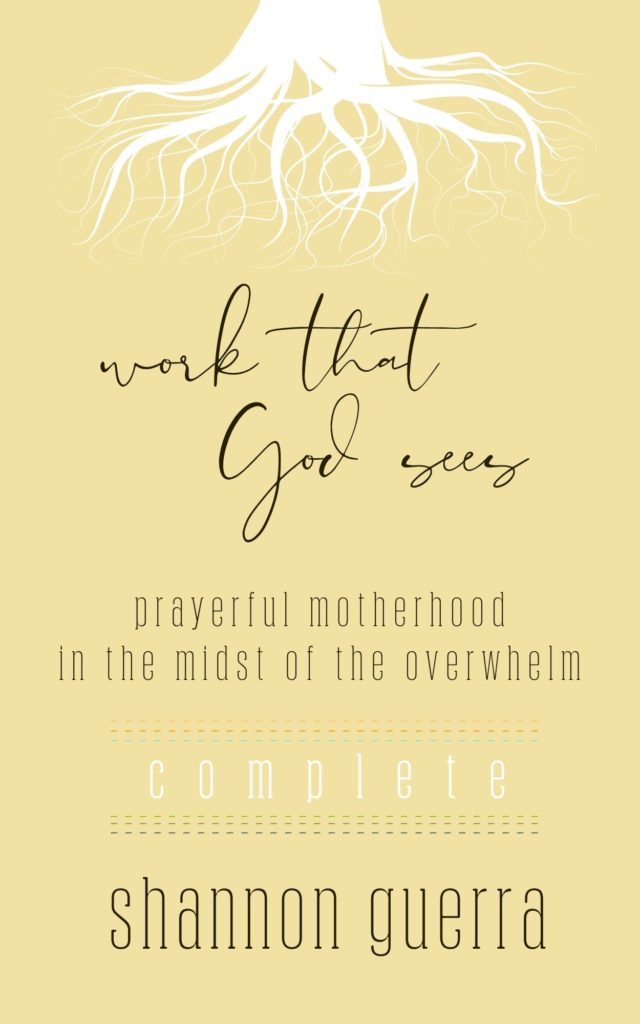
Which brings me back to the daisy-accidentally-substituted-as-dill. That story is in there.
Also, the story about when I almost drove into a snowy ditch because little Chamberlain was yelling at me from the backseat about that one time Wendy came over for all the beer. I have a good reason for that, and it’s in there.
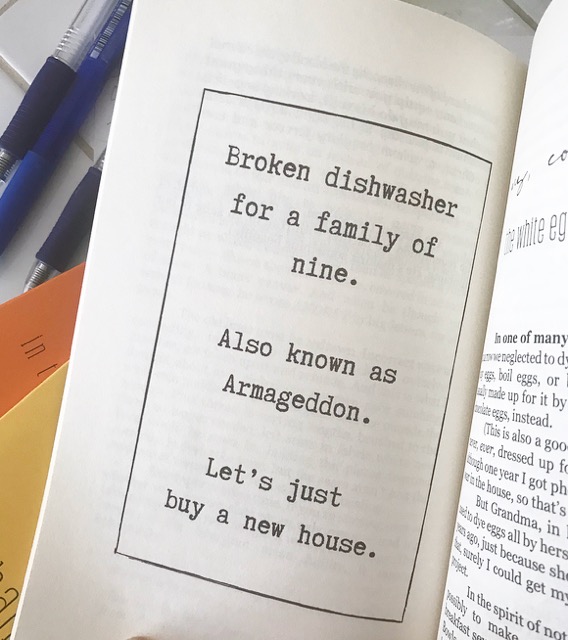
Also, one or two stories about trying to complete purchases from the unmentionables department unscathed by physical injury, emotional remorse, or other trauma.
Also, the story of how Grandma taught me (but obviously not Vince) how to fold fitted sheets.
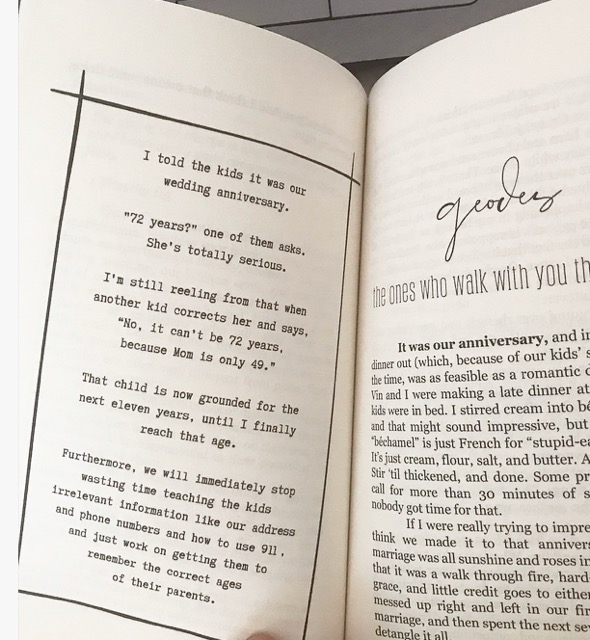
And also, because dads also do the work that God sees, the story of Vince pickle-forking. (In his words, it’s not as fun as it sounds.)
But also, there are the stories of God teaching me to slow down.
Of God showing me how He sees me when it feels like no one notices the work I’ve done.
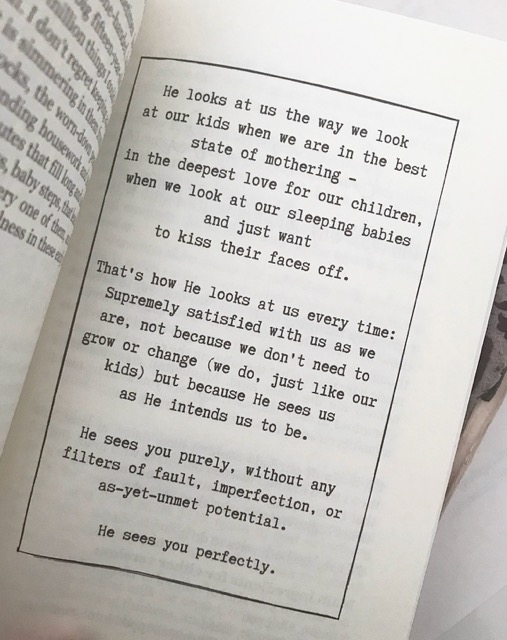
Of me learning to widen my circle after years of isolation, and learning to find light in dark places.
Of us learning to redraw new lines from old, unhealthy patterns, and find redemption in the process of starting over.
Of God teaching me to keep my eyes on Him so my kids will want to see Who I’m looking at.
Those are all in there, and they will speak to something deep within you.
And also, if you, like Finn, are in a phase of “wanting to make that,” there are knitting patterns, a crafty project or two, and several extremely quirky, non-technical recipes for you to try, including the fried banana cookie. (There’s no whiskey in any of them, I promise.)
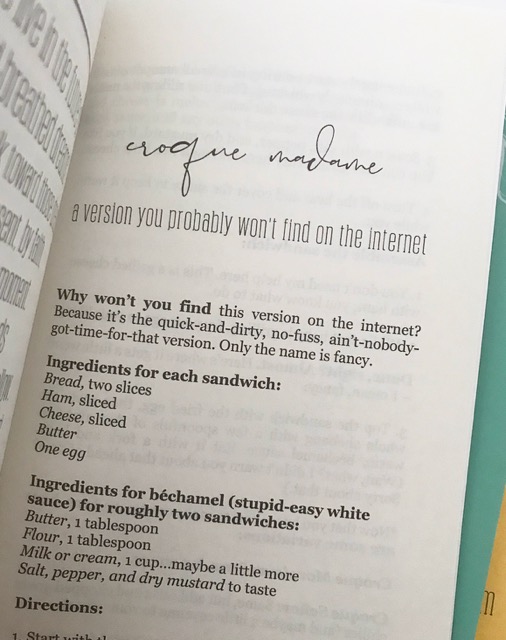
If you are in this season of doing it all and still never feeling like enough is getting done, of wanting to do more but often feel a little (or a lot) hopeless about ever being able to it, and sometimes you wonder if there’s any purpose to the mundane repetition of all the work that is never finished, this book is for you.
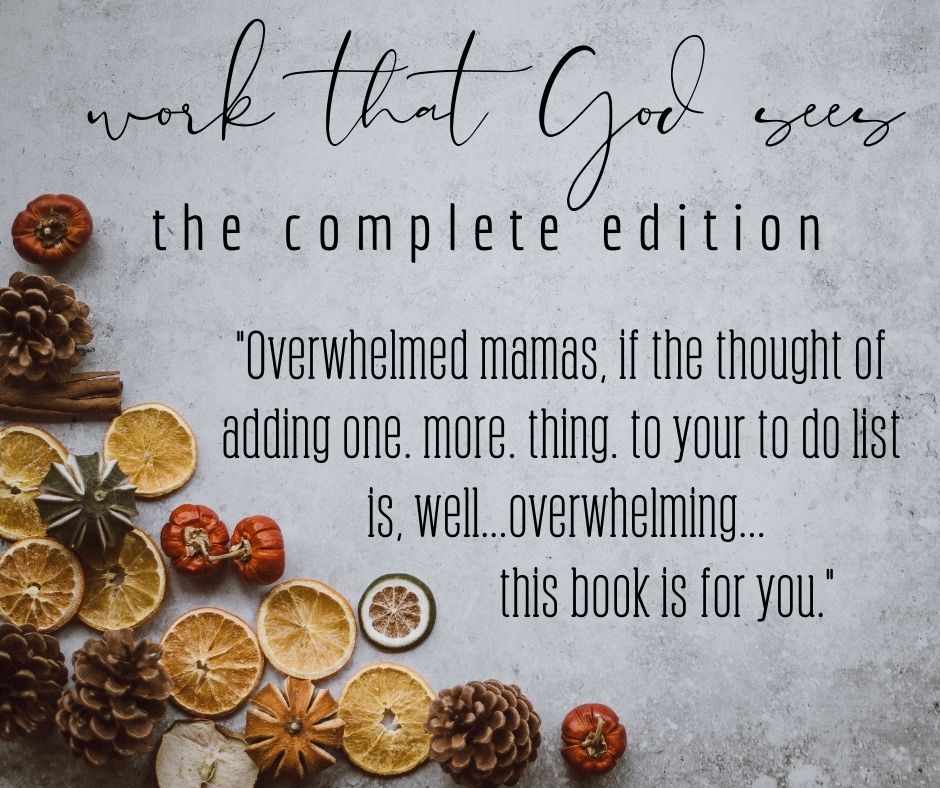
If you are trying to hear God in the middle of the mayhem, this book is for you.
If you want to know how seen and loved and strong you are in this season of meeting everyone else’s needs and just trying to find time to squeeze in a shower, this book is for you.
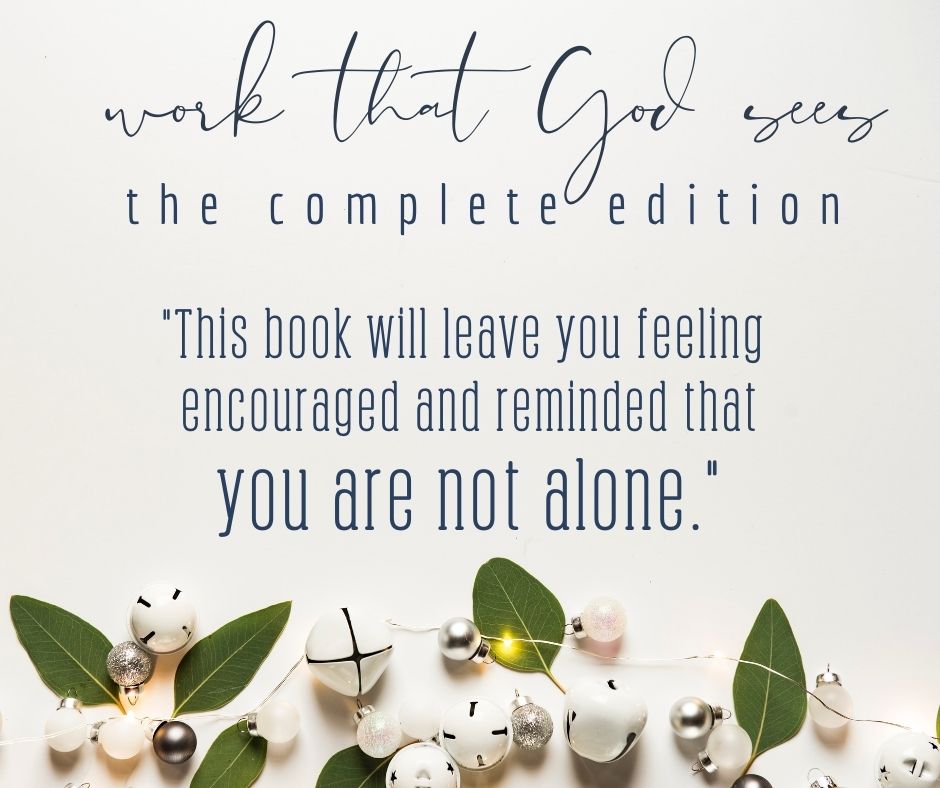
Our oldest just turned twenty, and our youngest turns two next month. Friends, I have been in this season for a long, loooong time. I know how dark and frustrating and ridiculous it can be.
But I also know how faithful He is to meet us right there, in the midst of the overwhelm.
And that story is in there, too.
_______
Work That God Sees: Complete Edition is available now on our site and in bookstores.
